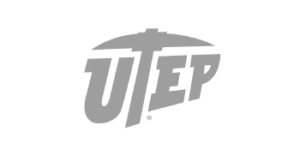The pandemic had a profound impact on countless careers, but few jobs were hit quite like nursing. As hospitals overflowed, staff was forced to take on impossible long shifts, risking their own health in the process. In many ways, it was the perfect environment to introduce a robot like Diligent’s Moxi, a system designed to offer a couple of helping hands to overworked healthcare providers.
“When the pandemic hit in 2020 and then flared back up in 2021, the nature of the pandemic allowed Moxi to fit right in and help its co-workers,” co-founder and CEO Andrea Thomaz tells TechCrunch. Once the initial COVID wave calmed down, Diligent became even busier as hospitals recognized they were heading toward a crisis with their staff and began to request demos of the robot, which was solving their problems in innovative ways. Today, hospitals are still in crisis mode as healthcare worker turnover and burnout are at an all-time high. Every hospital system we have talked to, especially this year, is looking to reinvent their workforce and agree it will need to look different in the future.”
Diligent expects to have north of 100 Moxi units deployed across 22 hospital systems in the U.S. by end of year. If you’ve visited a hospital during the pandemic, you may well have seen a unit carrying supplies and riding the elevator.
Today the Austin-based firm is announcing a $25 million raise led by Canaan. True Ventures, DNX Ventures, Next Coast and Northwestern Medicine Innovation also participated in the round. It’s a healthy sum designed boost production and R&D, as Diligent looks to triple its reach in the States.
“We have spent the last year and half deploying new implementations with health systems,” says Thomaz. “Most health systems in the U.S. have anywhere from five to 50 hospitals in their network, and the larger health systems have even more. Next year we expect to continue to expand our client base into new health systems, but we also are seeing a demand for considerable expansion to new hospitals within our existing health systems.”
Speaking to the company’s future, Thomaz says, “we don’t just see ourselves as a robotics company. We see ourselves as robot experts, helping improve workflows for people. There are opportunities for some exciting new hardware solutions that diversify what we can carry, new product lines that extend Moxi’s current use case, integrations with [electronic medical records] and intelligent applications that can improve care models for Hospitals. This starts with our platform investments, where we aim to optimize deliveries and make it easier to manage robots at scale in a way that improves clinical outcomes.”
She adds that — like much of the robotics world — Diligent is exploring generative AI use around natural language controls. “We have some early explorations here but nothing ready to talk publicly about yet,” she says. “In general, we have been using this type of state of the art AI technology in our perception pipeline for some time now.”








